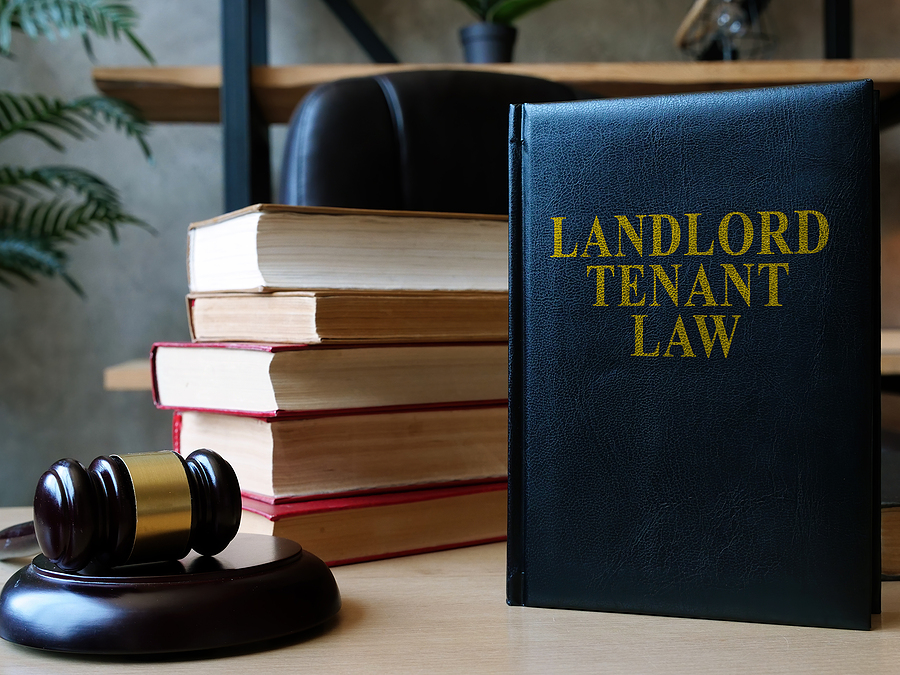Being a landlord and practicing property management is a great way to generate passive income and build your investment portfolio. However, it’s not all upside; managing rental properties also comes with both financial and legal risks, and you’ll need to carefully understand and manage those risks if you want to be successful.
If you violate a law, break an agreement, or treat your tenants unfairly, they can take legal action against you. So what steps can you take to avoid being sued as a landlord?
The Threat of Legal Action
If you aren’t careful, your tenants can (and likely will) sue you – and the threat of a lawsuit is significant, both financially and practically. Even if you’re successful in defending yourself in the lawsuit, it’s going to cost you time and money, and cause you a lot of stress.
Thankfully, most opportunities for tenants to sue you are relatively easy to avoid. Most lawsuits against landlords are because of one or more of the following:
- Property issues. Significant property issues that affect the safety or health of your tenants must be taken care of with haste. If you allow these issues to persist or grow worse, your tenants may be able to sue. For example, if you refuse to fix a leaky roof or if the property has black mold you refuse to address, eventually the tenants may sue for damages.
- Security deposit issues. You may also face legal action as a result of security deposit issues. Withholding a security deposit without proper reason opens the door to this.
- Discrimination. Discrimination against people on the basis of sex, race, gender, family status, disabilities, and other issues is illegal. If you discriminate against people based on these qualities or others, they could sue you.
- Illegal eviction. Evictions are expensive and complicated, but sometimes, you have no other option. Even so, it’s your responsibility to follow eviction processes according to the law. Otherwise, your tenants will have a case against you.
- Privacy violations. Privacy violations and violations of other tenant rights may also lead to legal action.
- Contract violations. And of course, if you break or violate the lease agreements you’ve signed, you’ll also open yourself to legal consequences.
How to Avoid Being Sued as a Landlord
So what steps can you take to avoid being sued as a landlord?
- Work with a lawyer. Always work with a lawyer, from the very beginning. Make sure you understand all applicable real estate laws and that you’re following them adequately. If you do face any legally complicated issues or if someone is threatening to sue you, contact your lawyer right away.
- Work with a property management company. It’s also helpful to work with a property management company, which can help you follow clear, consistent practices and stay compliant with the law. It takes a lot of the guesswork out of managing properties.
- Set up an LLC. A limited liability company (LLC) is a legal structure designed to shield its owners from liability issues. If you have one in place, your tenants will still be able to sue “you,” but you’ll significantly reduce your own personal financial liability.
- Double check the legality of all your decisions. When in doubt, double check the legality of your decision. Which types of repairs and improvements are you directly responsible for? What does your contract state? Are there any peculiar or often neglected laws in your area?
- Keep a paper trail for everything. Keep thorough and meticulous records of everything, including conversations you have with your tenants. You never know when this information might be valuable. If you have consistent, verifiable records, no tenant will be able to sue you successfully without just cause.
- Act quickly to handle repairs. If and when issues arise with the property, work to fix them as quickly as possible. This will keep the property hospitable and safe, while also keeping your tenants happier.
- Practice effective conflict resolution. There are many viable approaches to conflict resolution, but nearly all of them share the same fundamental DNA. It’s important to openly acknowledge the issue, work proactively with the other party, communicate with sympathy, and compromise when necessary.
- Establish rapport with your tenants. Finally, build some rapport with your tenants. If they genuinely like you and you genuinely work to make them happy, they’ll be much less likely to sue you – even if things go wrong.
As you can see, it’s relatively easy to avoid being sued as a landlord as long as you work with the right people and do your due diligence. Especially litigious, disgruntled tenants may still attempt to sue you even if you do everything right, but these should be very rare incidents – and if you follow all the strategies here, you should have no trouble defending yourself in court.
Image Source: BigStockPhoto.com (Licensed)
Related Categories: Legal, Reviews, Work








